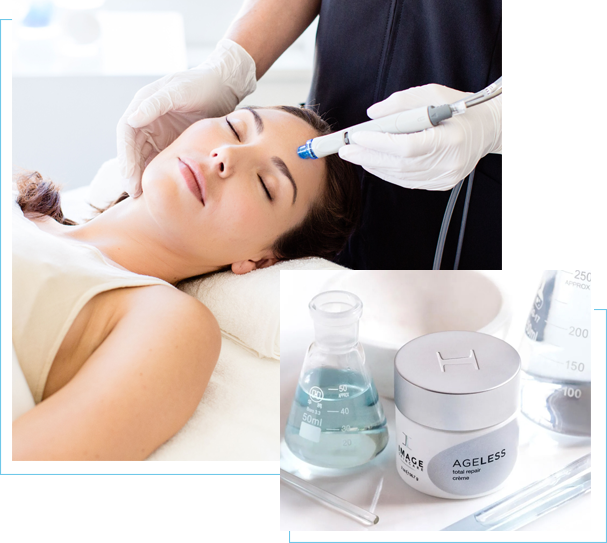
Sunscreen and Sun Safety
You don’t have to give up vacations in Hawaii or fear the outdoor activities that you enjoy. You simply need to take precautions to protect yourself. Realistically, I don’t expect anyone to be perfect and have been burned myself, but these measures WILL make a difference that translates into a decreased risk of skin cancer.
Sunscreen
Consistent sunscreen usage decreases the incidence of skin cancers, is a proven, cost-effective preventive measure, and helps you look younger longer. No one uses enough. To cover yourself, 1 oz is needed ( the size of a shot glass), so if you are reapplying every couple of hours, a normal bottle will only last a couple of days at the beach (a typical 8 oz. bottle is only eight whole body applications). No one, and I mean NO ONE, ever uses the recommended amount. Try.
There are an overwhelming number of choices, but all you need to do is buy something SPF 50+ with UVA and UVB protection and use a lot of it. The ingredients are generic except for ecamsule (exclusive to L’Oreal, sold as Mexoryl), so it is not necessary to pay more than $10 a bottle.
Cream Sunscreens
I like Neutrogena Ultra Sheer as my workhorse go-to sunscreen, but also like Neutrogena Clear Face for those prone to acne, and Pure and Free Baby for babies or those with sensitive skin.
Spray sunscreens
These might be the best choice for outdoor work since they usually don’t feel “sticky”, but I find sprays hard to use because in order to get enough on you, you need to spray until you look wet. By this time, there tends to be a huge sunscreen gas cloud around me. The bottom line is that many people are getting burned (literally) because they just don’t use enough spray.
Once you find a sunscreen you like, keep some by the door, in the car, in the baby bag, etc., so that it is always around. You should plan to reapply after being in the sun for 2-3 hours, or in the water.
When shopping for sunscreen:
- Physical sunscreens are mineral-based, “old-school,” and contain Zinc and Titanium Oxides. They reflect the ultraviolet radiation and are incredibly effective. These are especially useful for people concerned about chemicals or have had an allergic reaction to a chemical sunscreen (usually avobenzone).
- Chemical sunscreens contain a variety of substances that absorb ultraviolet radiation such as ecamsule, avobenzone, oxybenzone, homosalate, octisalate, octocrylene (no one really uses PABA anymore). The chemicals are often destroyed while protecting your skin, making re-application even more important.
Everyday face protection
Daily use of facial sunscreen is the single most effective anti-aging thing anyone can do and helps decrease skin cancers. The key is making it simple. Women should look for a daily moisturizer with SPF 30+ (Neutrogena Healthy Defense and Oil of Olay Complete) or makeup that includes sunscreen. Men almost universally hate moisturizer, but one that I’ve found tolerable is Neutrogena Oil Free Moisturizer with SPF30. Also, Neutrogena and L’Oreal make inexpensive aftershave creams with sunscreen that can just be smeared everywhere, including the forehead, ears, and neck to make it easy.
Sun Protective Clothing
In addition to hats, special clothing designed to block ultraviolet radiation is useful. Sporting goods and outdoors stores carry this, but you don’t have to be a mountain climber to benefit. Gardeners, golfers, and fishermen should also look at these products, which are usually very durable and worth the investment.
Swimming
Waterproof sunscreens really don’t exist. They all come off in water — some just come off faster. A better solution for serious water activities and vacations are swim shirts. These are the best way to keep a bad burn from wrecking a trip.
Time your Outdoor Activities
Eighty percent of ultraviolet radiation hits earth from about 10 am to 3 pm (or whenever the sun is highest in the sky). Planning activities before and after these peak times makes sun protection a lot easier. This is especially relevant for golf, biking, gardening and other activities that you might regularly do. Run, golf, row, bike, hike, etc., outside those hours whenever possible. When on vacation at the beach, take long lunches in shaded areas. In a recent study, golfers who habitually picked early morning tee times had less skin cancer than afternoon golfers.
Babies
Concerns have been raised about sunscreen usage on babies. However, it has also been shown that newborn skin is FAR more susceptible to the effects of sun damage than adults, so protection during this age is critical. I recommend using sunscreens meant for babies to try to avoid some of the unnecessary chemicals, but for me the known risk of skin cancer trumps otherwise whatever these theoretical concerns are (the devil you know vs the one you don’t). Vanicream sunscreen (order online) is a good choice, but I also have used Aveeno Baby, Banana Boat Baby, and Neutrogena Baby.



No Comments
Sorry, the comment form is closed at this time.